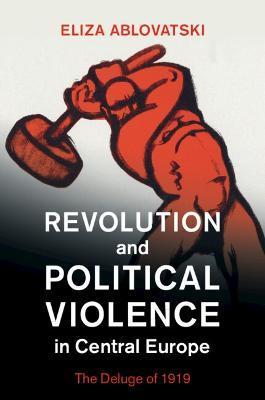Revolution and Political Violence in Central Europe

Revolution and Political Violence in Central Europe
In the wake of the First World War and Russian Revolutions, Central Europeans in 1919 faced a world of possibilities, threats, and extreme contrasts. Dramatic events since the end of the world war seemed poised to transform the world, but the form of that transformation was unclear and violently contested in the streets and societies of Munich and Budapest in 1919. The political perceptions of contemporaries, framed by gender stereotypes and antisemitism, reveal the sense of living history, of 'fighting the world revolution', which was shared by residents of the two cities. In 1919, both revolutionaries and counterrevolutionaries were focused on shaping the emerging new order according to their own worldview. By examining the narratives of these Central European revolutions in their transnational context, Eliza Ablovatski helps answer the question of why so many Germans and Hungarians chose to use their new political power for violence and repression.
PRP: 395.16 Lei
Acesta este Pretul Recomandat de Producator. Pretul de vanzare al produsului este afisat mai jos.
355.64Lei
355.64Lei
395.16 LeiLivrare in 2-4 saptamani
Descrierea produsului
In the wake of the First World War and Russian Revolutions, Central Europeans in 1919 faced a world of possibilities, threats, and extreme contrasts. Dramatic events since the end of the world war seemed poised to transform the world, but the form of that transformation was unclear and violently contested in the streets and societies of Munich and Budapest in 1919. The political perceptions of contemporaries, framed by gender stereotypes and antisemitism, reveal the sense of living history, of 'fighting the world revolution', which was shared by residents of the two cities. In 1919, both revolutionaries and counterrevolutionaries were focused on shaping the emerging new order according to their own worldview. By examining the narratives of these Central European revolutions in their transnational context, Eliza Ablovatski helps answer the question of why so many Germans and Hungarians chose to use their new political power for violence and repression.
Detaliile produsului








